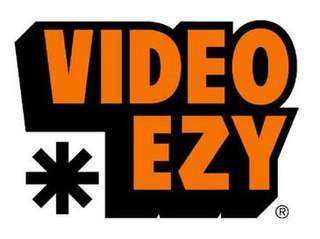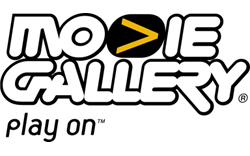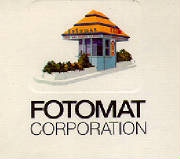This article needs additional citations for verification .(July 2008) (Learn how and when to remove this template message) |
George Atkinson (June 2, 1935 – March 3, 2005), was an American businessman, credited as the father of the storefront video rental store in the U.S. When the first videocassettes became available for the public, he was already in the movie business. Customers in the form of hotels and pizza parlors would rent movie projectors and public domain 8mm movies, and later U-Matic videotape. [1] The first video rental stores was, however, opened by Eckhard Baum in 1975 in Kassel, West-Germany. [2]
In the fall of 1977, George Atkinson made some extra space in his store and bought one Betamax and one VHS copy of each of the first 50 movie titles from Magnetic Video, which were then being sold to the public by direct mail. Announcing the availability of the videos for rent in a one-column-inch (25 mm) ad in the Los Angeles Times on December 7 1977 (he had already advertised "Video for Rent" at an earlier date before he had any videos, along with a coupon for readers to fill out and mail in), [1] [3] Atkinson turned his shop into the first professionally managed video rental store and renamed it Video Station, a 600 square foot (56 m²) storefront on Wilshire Boulevard in Los Angeles. [4] In order to raise capital, Atkinson charged $50 for an "annual membership" and $100 for a "lifetime membership," which provided the opportunity to rent the videos for $10 a day. [5]

Betamax is a consumer-level analog-recording and cassette format of magnetic tape for video. It was developed by Sony and was released in Japan on May 10, 1975. The first Betamax device introduced in the United States was the LV-1901 console, which included a 19-inch (48 cm) color monitor, and appeared in stores in early November 1975. The cassettes contain 0.50-inch-wide (12.7 mm) videotape in a design similar to that of the earlier, professional 0.75-inch-wide (19 mm), U-matic format. Betamax is obsolete, having lost the videotape format war to VHS. Despite this, Betamax recorders would not be discontinued until 2002, while new Betamax cassettes were available until March 2016, when Sony stopped making and selling them.

VHS is a standard for consumer-level analog video recording on tape cassettes. Developed by Victor Company of Japan (JVC) in the early 1970s, it was released in Japan on September 9, 1976 and in the United States on August 23, 1977.

Magnetic Video Corporation was a home video/home audio duplication service, that operated between 1968-1982.
Atkinson was soon threatened with a lawsuit for renting the videos, but discovered that U.S. copyright law gave him the right to rent and re-sell videos he owned. The battle to protect the public's right to rent videos was a major catalyst for the establishment of the Video Software Dealers Association in 1981.
Atkinson established the first major chain of video specialty retailers -- "The Video Station." At its peak, the chain had over 600 affiliates throughout the U.S. and Canada. He called these independently operated stores "affiliates" rather than franchises, not only in order to get around California's franchise tax but also because he didn't believe in "putting his hand in someone else's cash register." The company eventually went public but Atkinson resigned as president in 1983. [5]
He was the first "Video Man of the Year" (1981), named "Video Retailer of the Year" in 1982 and inducted into the Video Hall of Fame in 1991. [5]









